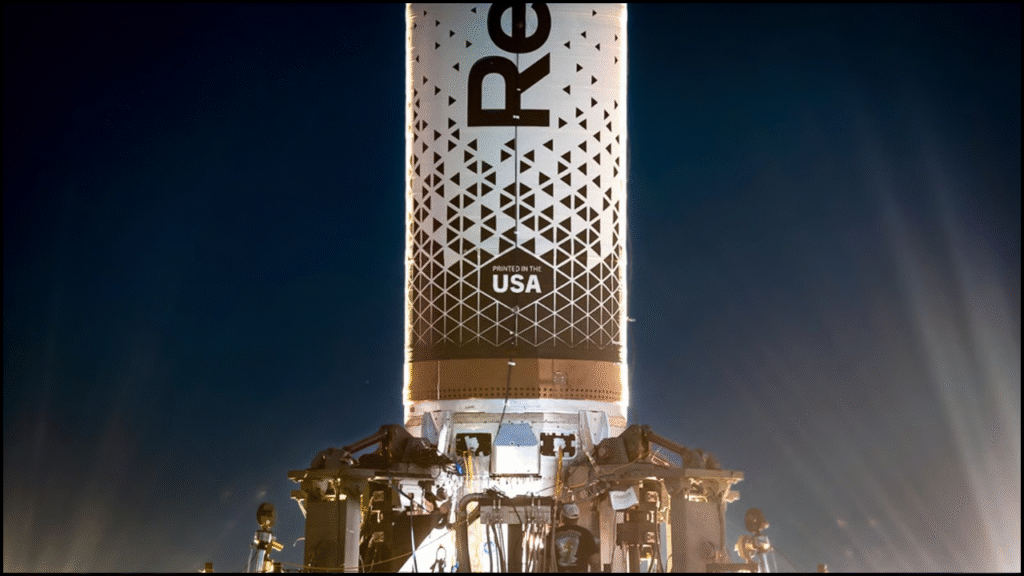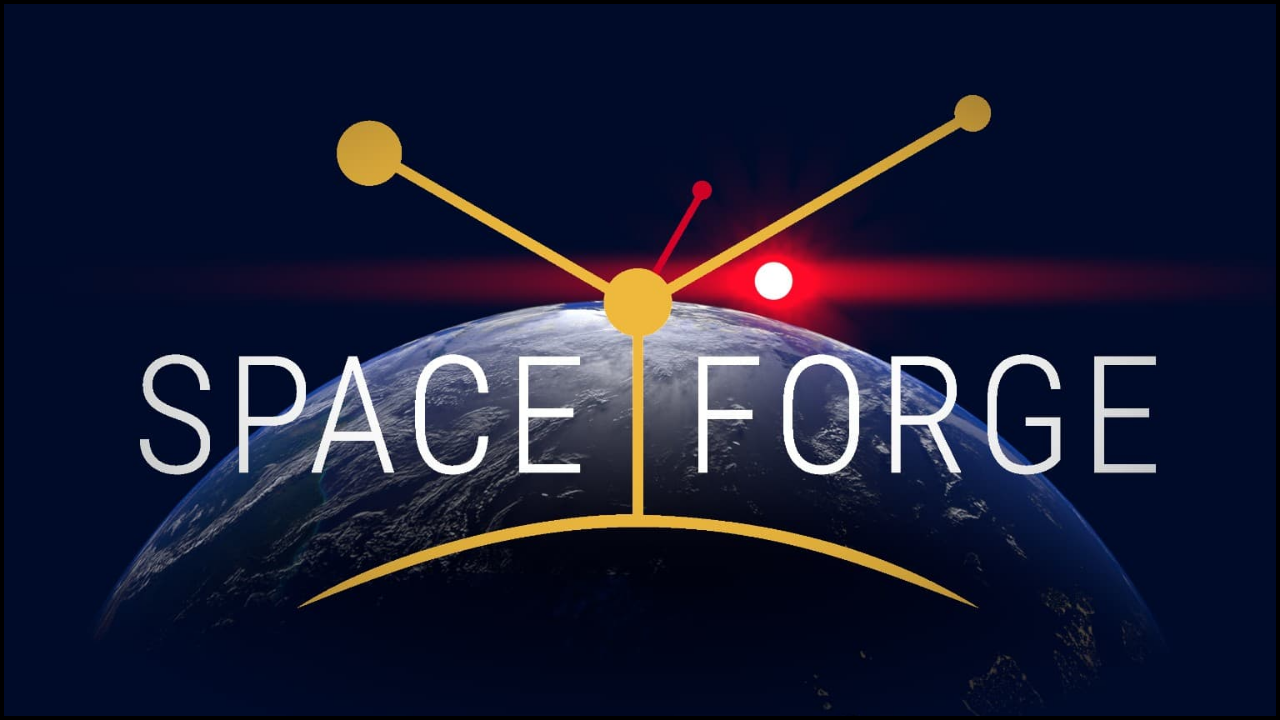In the burgeoning landscape of the new space economy, where innovation is paramount, a British company named Space Forge is rapidly emerging as a potential game-changer, poised to become the next big thing in space tech. While the space industry has historically focused on launch services and satellite deployment, Space Forge is carving out a unique and potentially transformative niche: in-orbit manufacturing with a focus on returnable capabilities. This innovative approach promises to unlock entirely new possibilities for materials science and high-value product creation, suggesting a profound shift in how we utilize the space environment for terrestrial benefit.

What is Space Forge?
Space Forge is a British aerospace manufacturing company headquartered in Cardiff, Wales, founded in 2018 by Joshua Western and Andrew Bacon. At its core, Space Forge is developing reusable satellite platforms, notably the “ForgeStar” series, designed specifically for on-orbit fabrication. Unlike traditional satellites that typically burn up upon re-entry, Space-Forge aims to perfect the capability to manufacture advanced materials in the unique conditions of microgravity and vacuum, and then safely return these valuable products to Earth. This closed-loop system – launch, manufacture, and return – is a critical differentiator. The company's initial focus is on producing advanced semiconductors and alloys, materials that are incredibly difficult, if not impossible, to manufacture with the same purity and defect-free characteristics under Earth's gravity. Space Forge believes that by leveraging the weightlessness and vacuum of space, they can create “super-materials” with enhanced performance for various industries.

Space Forge’s Role in Space Tech
Space Forge is not merely another launch provider; its role in space tech is centered on enabling the “clean industrial revolution” from orbit. The company is pioneering a new segment within the space economy: in-space manufacturing with a reliable return capability. This allows Space Forge to harness the unparalleled benefits of the space environment – microgravity, vacuum, and extreme temperature differentials – to forge materials with game-changing properties. These include semiconductors with significantly reduced energy consumption, critical for power-hungry infrastructure like 5G networks, data centers, and electric vehicles. Research suggests that manufacturing these materials in space could lead to substantial reductions in CO2 emissions (potentially up to 75%) and energy use (up to 60%) compared to Earth-based production, even accounting for launch emissions. This positions Space Forge as a key player in sustainable space tech, aligning technological advancement with environmental responsibility. By lowering the barriers to entry for premium research and development applications in microgravity, Space Forge is expanding the entire microgravity market, which previously relied on costly and often non-returnable missions.
Investing in Space Forge
As a privately held company, direct investment in Space Forge stock is currently limited to accredited and institutional investors. However, the company has attracted significant funding, reflecting strong investor confidence in its vision and technological potential. It recently secured a record-breaking €26.8 million (approximately $30 million) Series A funding round in May 2025, which is reportedly the largest Series A in UK space technology history. This round was notably co-led by the NATO Innovation Fund, with participation from World Fund, the National Security Strategic Investment Fund, and the British Business Bank, alongside other prominent venture capital firms. This diverse investor base, including those with national security interests, underscores the strategic importance attributed to Space Forge's capabilities in areas like semiconductor supply chain resilience and advanced materials for defense. For individual investors seeking exposure to Space Forge before a potential Initial Public Offering (IPO), indirect investment might be possible through venture funds or pre-IPO marketplaces like Hiive, though such avenues come with their own risks and regulations. The substantial backing indicates that many believe Space Forge is on a trajectory to significant growth within the space tech sector.

Space Forge Updates
Recent Space Forge updates highlight key milestones and plans. Following a challenging initial demonstration mission (ForgeStar-0) that failed to reach orbit aboard Virgin Orbit's last launch in 2023, Space Forge has shown remarkable resilience and progress. The company is now accelerating the development of its next-generation returnable manufacturing satellite, ForgeStar-2, and preparing for the launch of its ForgeStar-1 demonstrator mission, dubbed “The Forge Awakens,” scheduled for launch in 2025. This upcoming mission is critical for validating Space Forge's technology, particularly its proprietary return system designed for a soft landing without an ablative capsule. Furthermore, it has opened new facilities in Cardiff and an office in Portugal (on the island of Santa Maria in the Azores) to support its return infrastructure development in Europe. Partnerships with major players like Sierra Space and Northrop Grumman further solidify Space Forge's position to lead the commercialization of in-space manufacturing from Low Earth Orbit (LEO), demonstrating its commitment to scaling its space tech solutions.
US and UK Space Companies: The Broader Context
Space Forge operates within a vibrant global ecosystem of space tech companies, particularly notable in the US and UK. In the US, giants like SpaceX and Blue Origin continue to dominate launch and orbital tourism, while established aerospace and defense contractors like Lockheed Martin, Boeing, and Northrop Grumman remain key players in satellite manufacturing, deep-space probes, and government programs. Newer US companies like Relativity Space (3D-printed rockets), Axiom Space (commercial space stations), and AstroForge (asteroid mining focus) are pushing other frontiers.

The UK, while a smaller player than the US, is rapidly growing its space sector, with Space Forge being a prominent example. Other notable UK space tech companies include:
- Orbex and Skyrora: Both developing indigenous small satellite launch capabilities.
- Open Cosmos and AAC Clyde Space: Specializing in small satellite manufacturing and data services.
- Oxford Space Systems: Developing deployable structures and antennas for spacecraft.
- Reaction Engines: Working on revolutionary air-breathing rocket engines.
The UK government, through agencies like the UK Space Agency, is actively supporting the growth of its domestic space tech industry, recognizing its strategic importance.

Space Forge's success is a testament to the UK's burgeoning capabilities and its ambition to lead in specific, high-value segments of the space economy. The collaboration and competition among these diverse space tech companies, both within and across national borders, are collectively driving forward the next era of space exploration and industrialization. The rise of Space Forge exemplifies how targeted innovation can create significant impact within the broader space tech landscape.








